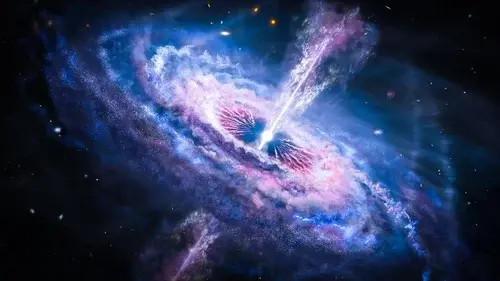
image text translation
Australia and New Zealand Research Team Analysis of Quasar Observation Data…Big Bang Captures Time Delay in Galaxy A Billion Years Later
Seoul = Yonhap News Reporter Lee Ju-young = In the movie Interstellar, astronauts who returned to the spacecraft after spending hours on the planet Miller, where gravity is much larger than Earth, find out that more than 23 years have passed in the meantime
Australian and New Zealand researchers analyzed the observation data of 190 quasar Quasar, a quasar celestial body, and confirmed a time delay phenomenon in which time flows five times slower in space than it is now, 1 billion years after the Big Bang
Professor Geraint Lewis of Sydney University and Brendan Brewer of Auckland University in New Zealand told Nature Astronomy on the 4th that this was the first observation of an extremely slow-moving early universe since the Big Bang and solved one of the mysteries of Einstein’s expanding universe
According to Einstein’s theory of special relativity and general relativity, time flows relatively differently depending on the observer’s state of motion or the magnitude of gravity, which is called time delay
According to Einstein’s theory of general relativity, the distant universe, or the early universe, should be observed to move much slower than it is now, which means that time should appear to flow five times slower when observing the universe one billion years after the Big Bang
But it is not easy to observe the universe so far in the past
In the study, the team analyzed the time delay using observation data from 190 quasars, active supermassive black holes in the early galactic center about a billion years after the Big Bang
Previously, astronomers used the supernova as a standard clock for time-delay studies, a phenomenon in which a giant star explodes at the end, but it was very bright, but difficult to observe from the long distances needed to look into the early universe
Lewis said, “Thanks to Einstein, we know that time and space are intertwined and that the universe continues to expand from the singularity that the Big Bang began,” adding, “This spatial expansion means that if we observe the early universe, time will flow much slower than it is now.”
The researchers found that the quasar observation data returned the time horizon to one-tenth of the age of the universe and that the time flow increased as the universe grew older
httpsnewsnatecomview20230704n01235

image text translation
(1)Perfectly ==